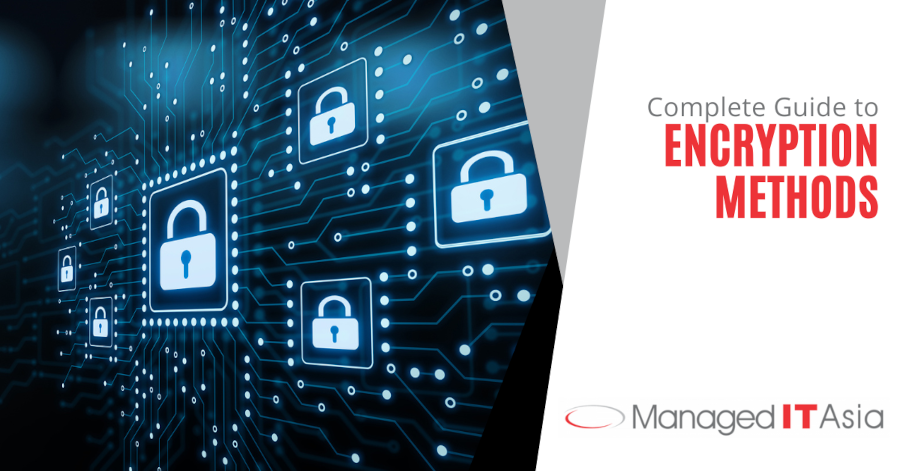In this digital age, protecting sensitive information has never been more important. Be it personal data, financial records, or confidential business information, encryption is the key to safeguarding your data from falling into the wrong hands. Encryption changes readable data into unreadable data; the only way it can be deciphered is by an authorized party. This guide will look into different methods of encryption, their uses, and how they ensure data security.
What is Encryption?
Encryption is the process of converting plaintext into ciphertext by using an algorithm and an encryption key. It ensures that even if data is intercepted during transmission or accessed without permission, it remains unintelligible to unauthorized users. The primary goal of encryption is to maintain the confidentiality and integrity of information while ensuring that it remains accessible to those with the correct decryption key.
Symmetric vs. Asymmetric Encryption
The encryption methods can be broadly categorized into two classes: symmetric and asymmetric encryption. Understanding the differences between these two types is important in selecting the right method for your needs.
Symmetric Encryption
Symmetric encryption involves using one key for both encryption and decryption. That is, the same secret key must be in the hands of both the sender and the receiver. Compared to asymmetric encryption, symmetric encryption is faster and more efficient; thus, it is appropriate for large volumes of data. However, the main challenge is how to securely share the key between the parties.
Asymmetric Encryption
Asymmetric encryption, on the other hand, involves a pair of keys: one public for encryption and another private for decryption. The public key can be publicly shared, but the private key should be kept secret. This method adds more security since no secret key is needed to be shared. Asymmetric encryption is often used in secure communications and digital signatures but is usually much slower compared to symmetric methods.
How Do Various Encryption Algorithms Work?
Symmetric and asymmetric encryption is implemented through various algorithms, each coming with certain strengths and weaknesses. Let’s look at a few of the most prevalent encryption algorithms.
Advanced Encryption Standard (AES)
AES is a widely adopted symmetric encryption standard known for its speed and security. It supports key lengths of 128, 192, or 256 bits, providing robust protection against brute-force attacks. AES is used in numerous applications, including securing wireless networks and encrypting sensitive files.
RSA (Rivest-Shamir-Adleman)
RSA is one of the widely used asymmetric encryption algorithms, whose security relies on the mathematical properties of large prime numbers. It allows users to securely send data by encrypting messages with a recipient’s public key that can only be decrypted with their private key. RSA finds widespread usage in secure email communication and digital certificates.
ECC (Elliptic Curve Cryptography)
ECC provides similar security benefits as RSA but with much smaller key sizes, hence faster computations and less resource utilization. This efficiency makes ECC a perfect fit for mobile devices and other environments where processing power is limited.
Why is Encryption Important?
Encryption is important in the modern world to ensure sensitive information is not compromised by cyber threats or unauthorized access. Here are some reasons why encryption is vital in today’s digital landscape:
Data Privacy
Encryption protects the confidentiality of personal and sensitive information of individuals, preserving their privacy rights. It ensures that during rest or in transit, private information is not disclosed to unauthorized persons.
Regulatory Compliance
Most industries are controlled by regulations in one way or another, requiring them to protect such sensitive data by encryption. Many standards, such as GDPR, HIPAA, and PCI-DSS compliance, demand an organization to deploy effective encryption practices.
Data Integrity
Encryption helps maintain data integrity by preventing unauthorized modifications during transmission or storage. This ensures that information remains accurate and reliable over time.
What Are Some Practical Applications of Encryption?
Encryption is used across various industries and applications to secure data and communications. Here are some common scenarios where encryption plays a critical role:
Secure Communications
Encryption ensures the confidentiality of emails, instant messages, and voice calls by preventing eavesdropping or interception by unauthorized parties.
Online Transactions
E-commerce websites use encryption to safeguard their customers’ financial information that is involved in online transactions and ensure secure processing of payments.
Cloud Storage
Cloud service providers use encryption to protect data stored on remote servers belonging to users to prevent unauthorised access or breaches.
How Can You Implement Encryption in Your organization?
Implementation of effective encryption strategies requires a proper roadmap and consideration of your organizational needs. Some of the steps to get you started with this process are listed here.
Assess Your Needs
Identify the types of data you need to protect, and assess the potential threats. Consider factors such as regulatory requirements, industry standards, and your organization’s risk tolerance.
Choose the Right Tools
Encryption Tools and Technologies: Choose suitable tools and technologies for encryption from the assessments made above. Considerations include ease of use, the degree of integration with existing systems, and the type of algorithms the solutions support.
Educate Your Team
Make employees aware of why encryption is important and of best practices in handling sensitive information.
Ready to Secure Your Data?
As discussed throughout this guide, encryption is an essential tool to protect sensitive information in today’s digital landscape. The knowledge of different encryption techniques and their uses will assist you in making informed decisions on how best to secure data within your organization. If you’re ready to enhance your data security strategy or have questions about implementing encryption solutions tailored to your needs, contact us at Managed IT Asia. Our team of experts is here to help you navigate the complexities of data protection with confidence.
MANAGED IT ASIA, we are an IT Support, IT Solutioning and Managed IT Service Provider specializing in serving Small Businesses across Asia. Call us at +65 6748 8776 and let us manage your Small Business IT today!
